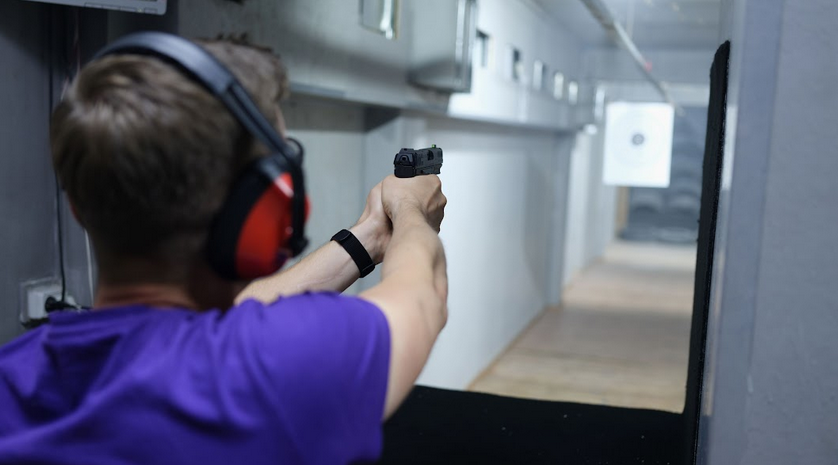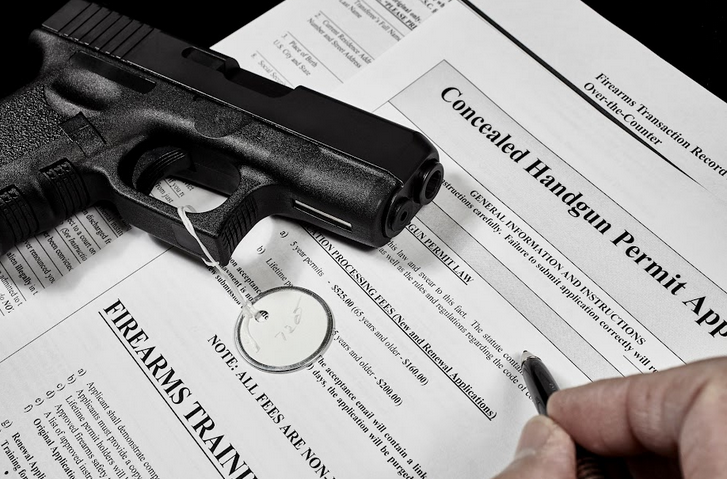Owning a gun legally means citizens must adhere to laws and regulations on gun purchase and ownership before being granted the privilege. It’s a huge responsibility because firearms can be lethal when misused. Gun ownership also entails learning how to use and secure it properly, especially if you carry it. Because of many gun-related casualties, seeking the appropriate way to own one legally is essential.
Steps To Owning A Gun
Getting a gun is not as easy as walking into a gun store and telling the salesperson you want a specific kind of firearm. There are regulations and requirements concerning gun ownership, but they vary widely from state to state.
For example, NC Gun Laws allow legal residents ages 21 and older to buy and own a handgun. Also, North Carolina does not require gun owners to register their firearms. On the other hand, Hawaii requires registration for all types of firearms, while in other states, only specific types of guns must be registered.
Here’s a step-by-step guide on how to own a gun legally.
Step 1: Familiarize Yourself With Federal And State Regulations
It’s crucial to be familiar with federal regulations on gun ownership. The prospective gun buyer should meet specific criteria such as the following:
- Current U.S. citizen or permanent resident
- Not indicted for an offense punishable by imprisonment exceeding one year
- Not previously convicted of a crime with a similar penalty
- Not issued a restraining order for domestic violence
- Not a user of a controlled substance
If you’re prohibited from purchasing a gun due to a previous felony conviction, you may seek the advice of reputable gun rights attorneys. But note that you need to meet specific eligibility criteria to have your gun rights restored.
Some states allow individuals as young as 18 to buy a long gun, while a minimum age of 21 is required for purchasing a handgun. Aside from federal laws, there are state gun laws and ordinances that you need to be aware of. Here are some areas covered by state restrictions:
- Gun registration
- Securing a permit or license to own or purchase a weapon
- Prohibition on semi-automatic weapons or assault weapons
- Enforcement of castle doctrine or stand-your-ground laws that justify the use of firearms for self-defense or protection of one’s home
Note that there may be municipal ordinances that you must learn, aside from federal and state regulations.
Step 2: Complete A Gun Safety Training Course
A firearm is dangerous in the hands of an individual who refuses to learn how to handle it safely. According to the Centers for Disease Control and Prevention (CDC), the highest number of gun deaths in the United States was recorded in 2020 at 45,222 fatalities, representing a 35% increase from the previous year.
In several states, including the District of Columbia, you must complete a gun safety training course before purchasing a firearm. The training teaches responsible practices for handling and firing a gun, proper safekeeping, and carrying it in public. You’ll likely avoid accidents if you know how to handle guns correctly.
You can take the firearm safety training course in-person or online. Gun safety courses vary from one state to another because of different legal requirements. Free online courses take about 90 minutes, but these are insufficient for a concealed-carry permit. On the other hand, comprehensive gun safety courses that include time on the shooting range may take eight hours to a full day.

Step 3: Apply For A Concealed Carry Permit
If you plan on bringing your firearm with you as a precaution, you may want to secure a concealed carry permit. This is technically not a requirement for owning a gun legally, but some gun owners find it necessary to carry a concealed weapon.
Currently, 25 states require individuals to obtain permits to carry concealed loaded weapons like handguns, aside from passing safety training and criminal background checks. Another requirement is to pass live-shooting exercises to gain competency in using a gun. States promulgate gun laws to encourage responsible gun ownership and promote public safety.
Here’s how to secure a concealed carry permit:
- Know The Requirements: Find out state-specific requirements to ensure you meet the eligibility criteria for carrying a concealed gun. In general, individuals must be at least 21 years and a legal resident of the state where they are applying for the permit.
In California, you must be of good moral character, and your business must be based in the state where you apply for a concealed carry permit. In addition, some states require character references from applicants.
- Take A Concealed Carry Course: Completing a concealed carry course is necessary to apply for a permit. Note that concealed carry training is more advanced than a standard gun safety course. It teaches you to be proficient at shooting a gun from various distances and how to disassemble, clean, and assemble your firearm correctly.
You’ll also learn the laws governing carrying a concealed gun and your legal rights in using a firearm for self-defense.
- Proceed With The Application Process: The application process also varies across states. For instance, some states only accept in-person applications, while others offer a specific online portal where you can start the process.
The validity of the permit varies per state. The permit is good for five years in Colorado but can extend up to 10 years in Oklahoma.
Step 4: Buy Your Gun From A Licensed Dealer
Head to the nearest firearms retailer, but make sure you’re dealing with a business with a Federal Firearms License (FFL). Firearms sellers must readily show proof of license when asked by a customer.
To buy a gun legally, you need to present a valid photo ID, such as a driver’s license or passport. You must also fill out Form 4473, the Firearms Transaction Record required by the U.S. Bureau of Alcohol, Tobacco, Firearms, and Explosives (ATF). Consisting of several pages, this form will ask for personal information such as date of birth, address, race, ethnicity, and physical characteristics like height and weight.
Furthermore, Form 4473 will ask questions such as the following:
- Are you the actual buyer of the firearm?
- Have you ever been convicted of a felony?
- Are you a fugitive from justice?
- Have you ever been committed to a mental institution?
It’s imperative to ensure the information you provide is accurate and complete. Making a false statement in this form is a felony under federal law.
Using your ID and the form you’ve filled out, the FFL dealer will conduct a background check through the National Instant Criminal Background Check System (NICS). The response could be ‘approved,’ ‘disapproved,’ or ‘delay.’ You can proceed with the gun purchase if the response is ‘approved.’
A ‘disapproved’ response from the background check could mean that the prospective gun buyer is prohibited from purchasing a firearm. Such prohibitions apply to those dishonorably discharged from the military, convicted of a crime punishable by imprisonment for more than a year, or an addict of a controlled substance.
A ‘delay’ response means the ATF has three days to conduct further investigation to determine whether you can proceed with the transaction.
Be warned that buying a gun for someone prohibited from owning a firearm, known as a straw purchase, is a criminal offense.
Step 5: Store Your Gun Properly
Responsible ownership is not only about learning how to use a gun but also how to keep it safe. Secure gun storage at home is critical to prevent theft and avoid unintentional shootings.
You may consider a gun case with a locking mechanism to keep single or multiple guns. They come in different designs and materials to keep your firearm safe and secure. Those made from heavy-duty plastic or fiber-reinforced material are durable yet lightweight, allowing you to transport your firearms safely. The price of soft and hard gun cases ranges from USD$15 to USD$500.
Other options are lock boxes, electronic lock boxes, and biometric gun safes. Lock boxes are portable and built with integrated locks. Electronic lock boxes are another reliable way to store your firearms, as they require a code to access the contents. The price of a lock box starts from USD$25, while an electronic lock box can be as high as USD$350.
On the other hand, a full-size biometric gun safe requires unique physical characteristics like fingerprints for authentication and access control. It’s a more expensive option, with prices ranging from USD$200 to USD$2,500.
Whether you’re a gun collector or a shooting athlete, there’s a gun storage solution that’s suitable for your needs. Whichever you choose, keep it in a concealed place and out of children’s reach.
Takeaway
Owning a gun legally entails familiarizing yourself with federal and state gun laws, completing a gun safety course, buying a firearm from a licensed dealer, and storing it properly. If you plan on carrying a concealed weapon for your protection, there are additional requirements you need to comply with, such as applying for a concealed carry permit and undergoing further training.
Note that laws and regulations on gun ownership are critical to reducing gun-related casualties. After all, guns can either be a weapon that can cause destruction or provide protection, depending on the hand that wields them.
Related Posts












